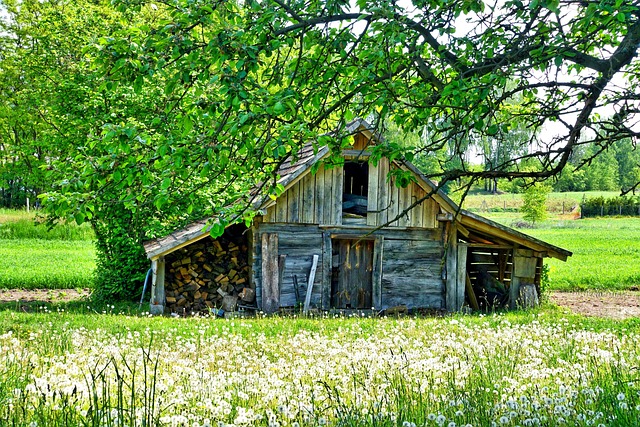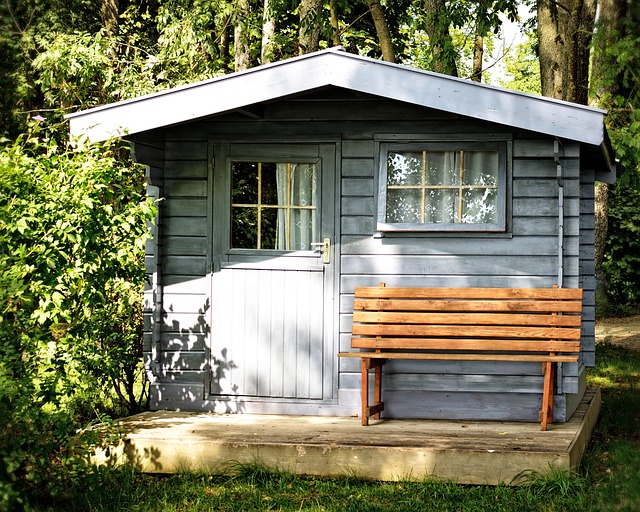The Riverina region in New South Wales has seen a transformative impact with the introduction of custom farm sheds that significantly enhance modern farming operations. These versatile structures are tailored to meet the specific needs of local farms, serving as multifunctional spaces for storing equipment, housing livestock, and processing crops. Designed to withstand the Riverina's extreme weather conditions—including both intense heatwaves and unpredictable rainfall—custom farm sheds offer year-round protection for both assets and animals, thereby improving productivity and animal welfare. Sustainability is a key consideration in their construction, with materials and designs chosen to minimize environmental impact. The integration of advanced technologies like climate control systems and solar energy panels ensures these farm sheds are at the forefront of optimizing operations and reducing costs. Their adaptability makes them indispensable for farms looking to adopt innovative and sustainable farming practices within the evolving agricultural landscape of Riverina. Farm Sheds have thus become a pivotal element in the success and resilience of New South Wales' agricultural industry, merging functionality with environmental stewardship.
Exploring the potential of agricultural sheds in enhancing the productivity and profitability of Riverina NSW farms, this article delves into the strategic planning and design considerations that optimize farm operations. From assessing local climate and soil conditions to integrating innovative features for storage efficiency, each aspect of shed construction is scrutinized. Further, the placement of these structures is pivotal in streamlining operations, maintaining soil health, and ensuring compliance with regional regulations. By examining case studies of successful Riverina farm sheds and exploring technological advancements, farmers can make informed decisions to maximize their investment’s longevity and effectiveness. Farm Sheds emerge as a cornerstone for modern farming practices in the Riverina region.
Optimizing Farm Operations with Custom Agricultural Sheds in Riverina NSW

In the expansive and diverse agricultural landscape of Riverina, New South Wales, farm shed solutions play a pivotal role in optimizing operations for local farmers. Custom agricultural sheds are tailored to meet the specific needs of each farm, ensuring that they serve as versatile hubs for storing equipment, sheltering livestock, and even processing crops. These sheds are engineered with durability and resilience in mind, designed to withstand the unique environmental challenges presented by the Riverina’s varied climates, from intense heatwaves to unpredictable rainfall. By investing in farm sheds that are custom-built for functionality and efficiency, Riverina farmers can significantly improve their productivity, maintain better organization of their tools and resources, and enhance the overall welfare of their animals. Moreover, these structures are often constructed with best practices in sustainability, reducing the environmental footprint and aligning with the eco-conscious ethos of modern farming.
The integration of technology into custom agricultural sheds further amplifies their benefits. Riverina’s farms can incorporate advanced climate control systems within sheds to protect sensitive equipment and crops from extreme weather conditions. Additionally, these sheds can be equipped with solar panels, harnessing the abundant sunshine that Riverina receives, thereby reducing reliance on traditional energy sources and lowering operational costs. The customizable nature of these farm structures allows for adaptability as farming practices evolve, ensuring that these sheds remain an asset long into the future. With a focus on enhancing operational efficiency and fostering sustainable agricultural practices, custom agricultural sheds are an indispensable component for any forward-thinking farm in Riverina, NSW.

In the expansive and diverse agricultural landscape of Riverina, New South Wales, farm sheds serve as indispensable assets for farmers, enhancing the efficiency and productivity of farming operations. These structures, commonly known as farm sheds, are not merely storage spaces but are multifunctional hubs integral to modern farming practices. They provide secure storage for machinery, equipment, and crops, protecting them from the elements and ensuring their longevity. Moreover, with the Riverina’s unique climate and varying soil types, these sheds are designed to cater to a range of agricultural activities, from grain storage to livestock housing. The design and construction of farm sheds in this region must take into account the specific needs of local farmers, including compliance with biosecurity measures and the ability to withstand harsh environmental conditions. As such, they are crafted to be both robust and adaptable, ensuring that they can accommodate changing agricultural demands over time.
The integration of farm sheds into Riverina’s farms is a testament to the region’s commitment to sustainable and innovative farming methods. These structures not only optimize space but also contribute to better crop management and animal husbandry. They are often equipped with modern features such as automated ventilation systems, energy-efficient lighting, and advanced locking mechanisms for enhanced security. Additionally, the choice of materials and construction techniques is crucial in aligning with the region’s environmental considerations, reflecting a balance between functionality and ecological responsibility. As a result, farm sheds have become pivotal components of contemporary farming operations in Riverina, supporting the agricultural industry’s growth and resilience.
In conclusion, farm sheds represent a pivotal investment for Riverina NSW farms, enhancing operational efficiency and providing versatile storage solutions that cater to the dynamic needs of modern agriculture. By adopting custom agricultural sheds, local farmers can significantly improve their crop yield management, machinery maintenance, and overall productivity, all while adhering to the unique environmental conditions of the region. The strategic placement of these structures not only optimizes space but also aligns with sustainable practices, ensuring that Riverina’s farming operations remain robust and forward-thinking in the face of evolving agricultural demands. As a testament to their utility, farm sheds are becoming an integral component of the region’s thriving agricultural sector, underscoring their importance in safeguarding and advancing Riverina’s legacy as a premier farming region in New South Wales.
